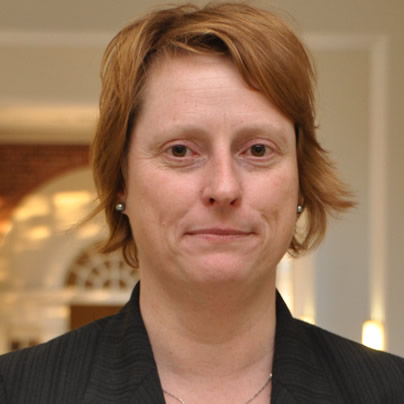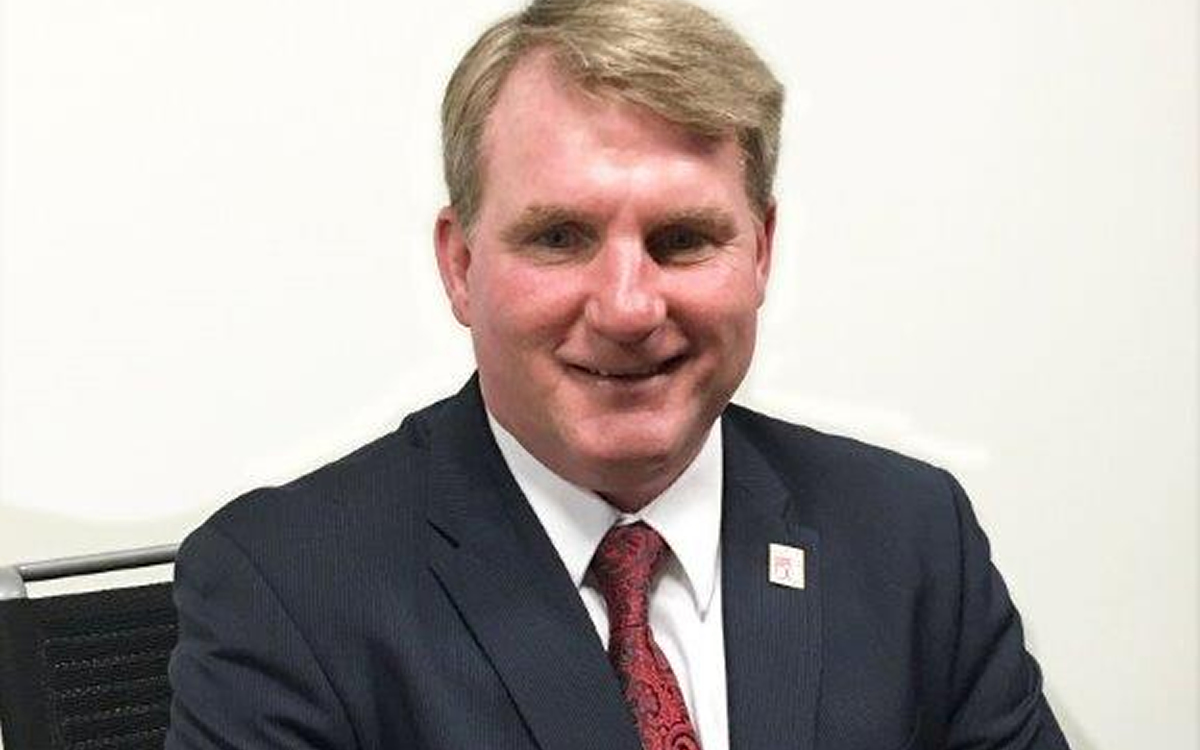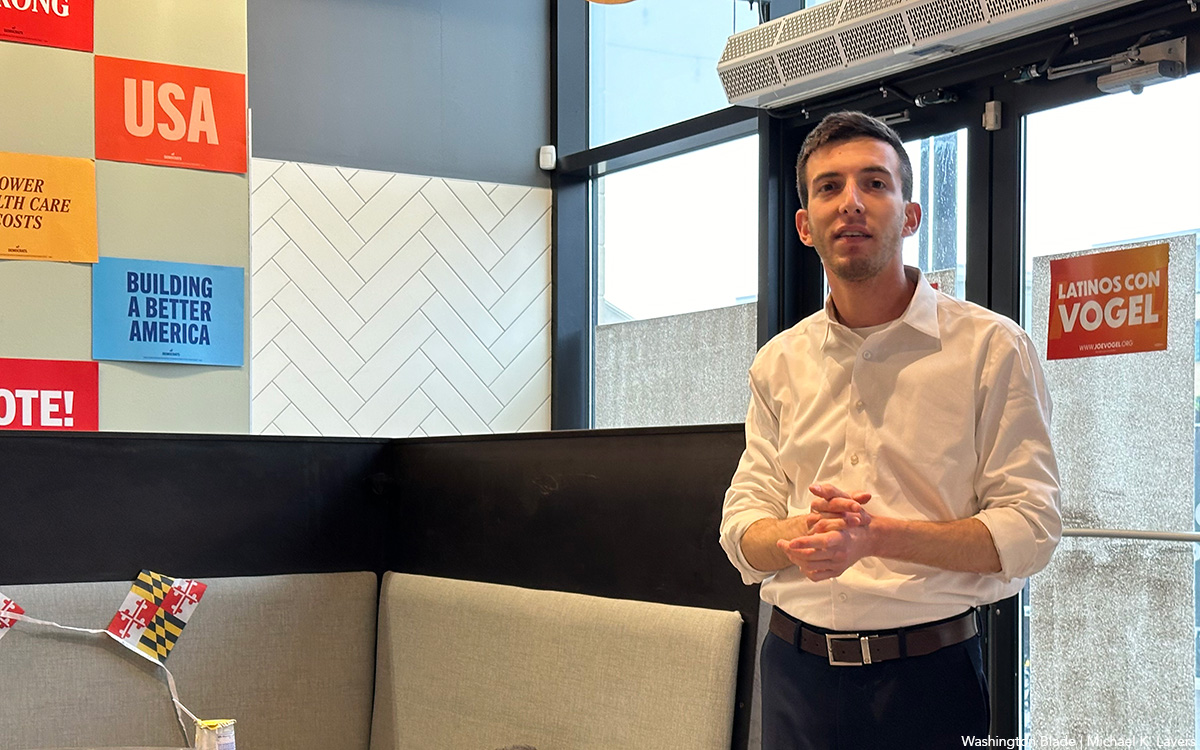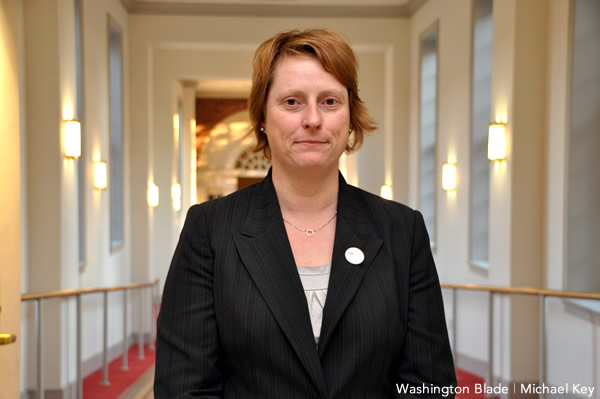Local
Equality Maryland sets post-marriage agenda
Transgender rights bill, HIV/AIDS, immigration among issues on which organization hopes to work

Equality Maryland executive director Carrie Evans decided to stand along the side of the stage at the Baltimore Soundstage shortly after midnight on Nov. 7 as Gov. Martin O’Malley, gay state Sen. Rich Madaleno (D-Montgomery County) and others officially proclaimed the referendum on Maryland’s same-sex marriage law had passed. She said in a post-Election Day interview in D.C. it was the “best vantage point to look out at everyone” who had played a role in the long fight to secure marriage rights for same-sex couples in the state.
“I was crying like a baby,” Evans told the Washington Blade. “You’d see every person out there whose been a part of this in some way, shape or form. Everybody out there was crying and hugging and kissing. We will never experience this moment again, ever. And I just wanted to absorb it all.”
Election Day capped off a long and often tumultuous effort for Maryland’s same-sex marriage advocates that began in 1997 when three lawmakers introduced the first bill that would have allowed nuptials for gays and lesbians.
Equality Maryland and the American Civil Liberties Union in 2004 filed a lawsuit on behalf of Lisa Polyak and Gita Deane and eight other same-sex couples and a gay widow who sought the right to marry in the state. Baltimore Circuit Court Judge M. Brooke Murdock in 2006 found Maryland’s same-sex marriage ban unconstitutional. The Maryland Court of Appeals a year later upheld the prohibition on nuptials for gays and lesbians.
State lawmakers in 2011 narrowly defeated a same-sex marriage bill, but legislators approved it in February. O’Malley signed the law on March 1.
Evans said Equality Maryland, the Human Rights Campaign, the ACLU and other organizations that had fought for the same-sex marriage bill knew opponents would almost certainly collect enough signatures to force a referendum on the issue. The coalition that eventually became known as Marylanders for Marriage Equality formed before the legislative session ended in April.
“We’ve won in the Baltimore trial court, got excited but we knew we had to go to Court of Appeals, lost there,” Evans said. “[We] went to the legislature, couldn’t even really celebrate after that because you knew it was going to referendum. We had our little woohoo, but knowing this is going to referendum and being able to finally say ‘This is it, we’re done.’”
Evans, who took the helm of Equality Maryland last December, said her organization contributed more than $200,000 to Marylanders for Marriage Equality. The campaign ultimately raised nearly $6 million, but she said Equality Maryland’s contribution is remarkable considering her organization nearly closed its doors in the summer of 2011 in the wake of former executive director Morgan Meneses-Sheets’ termination.
“I’m so proud because 12 months ago Equality Maryland was pretty much broke and struggling,” said Evans. “Not only have we come out of that and had a good 2012 budget for the organization, we raised over $200,000 for the campaign, which is amazing.”
Mass., Iowa groups re-evaluate missions after marriage victories
Advocacy groups in other states have had to re-evaluate their agenda once same-sex couples won the right to marry.
Love Makes a Family of Connecticut, which spearheaded the passage of the state’s same-sex marriage law, disbanded in 2009 after then-Gov. Jodi Rell signed the measure. It took effect in Oct. 2010.
MassEquality also re-evaluated its mission after lawmakers in 2007 rejected a proposed referendum on amending the state constitution to ban nuptials for gays and lesbians. Massachusetts’ same-sex marriage law took effect in 2004.
“There were town halls that were done all over the state to ask people should MassEquality continue to exist, should we change the resources and the political power and the reputation, the expertise we had developed and leverage it to a multi-issue agenda that would basically lift up the other existing LGBT groups throughout the state,” Kara Suffredini, the group’s executive director, told the Blade. “The conclusion was yes: We have all the resources, we have all this political power. Yes, let’s use it to leverage other groups. And that’s what we’ve done since.”
Since the same-sex marriage debate ended in Massachusetts, MassEquality has worked with the Massachusetts Transgender Political Coalition to advocate on behalf of a trans rights bill Gov. Deval Patrick signed into law last November. The group has also worked with the LGBT Aging Project to address health disparities among LGBT elders and the Boston Alliance of Gay, Lesbian, Bisexual and Transgender Youth (BAGLY) to address homelessness among LGBT youth and bullying.
MassEquality has a seat on a commission state lawmakers created earlier this year to study the issue of homelessness among young people.
“Obviously marriage equality is an issue that garners a lot of attention and resources,” said Suffredini. “Once it’s done, there is plenty else to do and it was not difficult for us to figure out what else there was to do.”
Same-sex couples have been able to legally marry in the Hawkeye State since the Iowa Supreme Court in 2009 unanimously struck down the ban on nuptials for gays and lesbians. Voters in 2010 removed three of the justices who backed the ruling from the bench. Opponents failed to unseat a fourth on Nov. 6.
“Just because you have marriage, it doesn’t mean you stop being vigilant,” Donna Red Wing, executive director of One Iowa, told the Blade. “Here in Iowa if we don’t maintain a Democratic Senate majority at this time, we might see marriage on the ballot. And so we need to really make sure that we not only continue to hold back the forces working against us, but that we do the work that needs to be done across the state and that’s putting a face and a voice to what it means to be gay and lesbian or bi or trans in Iowa.”
One Iowa continues to fight to secure parental rights for same-sex couples — she noted the state’s Department of Public Health refused to allow a married lesbian who had a child with her wife to be recognized on their birth certificate. Red Wing pointed to another case in which officials “crudely whited-out” a lesbian mother’s name on her stillborn child’s birth certificate because she said the Department of Public Health would not recognize the two women as parents.
The group is also working with HIV/AIDS service providers to decriminalize those living with the virus and to address LGBT-specific health care disparities across Iowa.
“From birth to death we’re looking at the issues that impact Iowans — specifically LGBT Iowans – and how we can really strengthen and deepen what equality means for them,” Red Wing said.
Back in Maryland, Evans said Equality Maryland plans to work to make sure the same-sex marriage law is fully implemented once it takes effect on Jan. 1.
“We have to clean up a few regulations,” she said. “There may even be some litigation for clerks of court who aren’t complying. We still have some counties that aren’t offering spousal benefits to same-sex couples to same-sex spouses despite the Port v. Cowan court case [where the Court of Appeals in May unanimously ruled same-sex couples who legally married in another state can obtain divorces in Maryland] and attorney general.”
Equality Maryland continues to strategize with the Maryland Coalition for Trans Equality on how to advance a bill during the upcoming legislative session that would add gender identity and expression to the state’s anti-discrimination law. The organization also hopes to work with the NAACP and Revs. Delman Coates of Mt. Ennon Baptist Church in Prince George’s County and Donté Hickman of Southern Baptist Church in Baltimore and other groups to address health disparities and reduce HIV/AIDS rates among disproportionately affected populations in the state.
Evans further stressed she hopes to continue Equality Maryland’s work on immigration-related issues that began in August when it and CASA de Maryland announced a campaign to build additional support for the same-sex marriage and a law that provides in-state tuition to undocumented immigrants — voters on Nov. 6 approved the Maryland Dream Act by a 59-41 percent margin.
Equality Maryland also plans to work with the Maryland State Department of Education to ensure the state’s anti-bullying regulations are properly implemented.
“We’re going to start really focusing on that, making sure the way students are treated in Montgomery County is the way they’re treated in Garrett County and the way they’re treated in Cecil [County],” Evans said.
District of Columbia
Taste of Point returns at critical time for queer students
BIPOC scholar to speak at Room & Board event on May 2

The Point Foundation will kick off May with its annual Taste of Point DC event. The event will be hosted at Room & Board on 14th Street and feature a silent auction, food tastings, a speech from a scholar, and more.
Point’s chief of staff, Kevin Wright, said that at Taste of Point, the scholars are the star of the show.
“People never come to an event to hear Point staff speak, they come to hear from the people most impacted by the program,” he said. “At its core Taste of Point is designed to center and highlight our scholars’ voices and experiences.”
This year, a Point BIPOC Scholar, Katherine Guerrero Rivera will speak at the event.
“It is a great opportunity to highlight the scholars out there on the front lines making impacts in almost every sector and job field,” Wright said.
Wright pointed out that this year especially is a pivotal time for LGBTQ students.
“In 2023, there were 20 states that passed anti-LGBTQ legislation,” he said. “By this point in [2024] we already have more.”
Wright said the impacts of those legislative attacks are far reaching and that Point is continuously monitoring the impact they have on students on the ground.
Last month, The Washington Post reported that states with anti-LGBTQ laws in place saw school hate crimes quadruple. This report came a month after a non-binary student, Nex Bennedict, died after being attacked at school.
“So, we see this as a critical moment to really step up and help students who are facing these challenges on their campus,” Wright said. “Our mission is to continue to empower our scholars to achieve their full academic and leadership potential.”
This year Point awarded nearly 600 LGBTQ students with scholarships. These include the flagship scholarship, community college scholarship and the BIPOC scholarship. When the foundation started in 2002, there were only eight scholarships awarded.
Dr. Harjant Gill is one of those scholars who said the scholarship was pivotal for him. Gill said he spent his undergraduate years creating films and doing activism for the LGBTQ community.
As a result, his academic record wasn’t stellar and although he was admitted into American University’s graduate program he had no clue how he would fund it.
Upon arrival to American he was told to apply for a Point scholarship and the rest was history.
“It ended up being the one thing that kept me going otherwise I would have dropped out,” he said. “Point was incredibly instrumental in my journey to becoming an academic and a professor.”
More than a decade later, Gill serves on the host committee for Taste of Point and is a mentor to young Point scholars. He said that he donates money yearly to Point and that when he is asked what he wants for a gift he will often tell his friends to donate too.
To attend the event on Wednesday, May 2, purchase tickets at the Point website. If you can’t attend this year’s Taste of Point DC event but would like to get involved, you can also donate online.
District of Columbia
Three of five LGBTQ candidates win race for DNC delegate from D.C.
32 candidates competed for 13 elected seats in party caucus

Three out of five known LGBTQ candidates running for election as delegates from D.C. to the Democratic National Convention won their races at an April 20 Democratic Party caucus election held at D.C.’s Walter Washington Convention Center.
Ward 2 gay Democratic activist John Fanning finished in first place with 140 votes and Ward 8 gay Democratic activist David Meadows finished in second place with 127 votes in a race in which six male candidates committed to supporting President Biden were competing for three male seats in a section of the city designated as Congressional District 1, which included registered Democratic voters in Wards 1, 2, 6, and 8.
Ward 7 gay Democratic activist Jimmie Williams won his race, finishing in third place with 200 votes in a race in which eight male candidates committed to President Biden competed for four male seats in the Congressional District 2 section of the city that included Wards 3, 4, 5, and 7.
Gay Democratic activist Felipe Afanador lost his race, finishing in sixth place with 47 votes in the Congressional District 2 election for male candidates backing Biden. It couldn’t immediately be determined which of the four wards in District 2 he is from.
The Washington Blade didn’t learn about Afanador’s status as an LGBTQ candidate until the Capital Stonewall Democrats announced it one day before the April 20 party election in an email statement.
In the Congressional District 2 race among female candidates, in which eight candidates competed for three female seats, transgender rights advocate and Ward 3 Democratic Party activist Monika Nemeth lost her race, finishing in sixth place with 49 votes.
The five LGBTQ candidates were among 32 candidates competing for just 13 elected delegate positions in D.C. D.C. will have a total of 51 delegates to the Democratic Convention, but the other 38 include elected officials and party leaders who are considered “automatic” or appointed delegates. The Democratic Convention will be held in Chicago Aug. 19-23.
Observers familiar with the April 20 party caucus election said Fanning, Meadows, and Williams had participated in local D.C. Democratic Party events and activities for a longer period than Nemeth and Afanador and appear to have been better known among Democratic voters in their respective wards as well as other wards. Those factors contributed to their receiving significantly more votes than most other candidates, observers have said.
In his candidacy statement posted on the D.C. Democratic Party website, Afanador said he worked on the 2020 Biden presidential election campaign in Pennsylvania. His LinkedIn page says in 2022 he began work in Washington for the Biden administration as an official in the U.S. Department of Agriculture.
Nemeth is a past president of D.C.’s Capital Stonewall Democrats, the city’s largest LGBTQ local political group, and has been an active member of the D.C. Democratic State Committee, the local party governing body. She served as a Biden delegate at the 2020 Democratic National Convention.
“It is important for our D.C. delegation to have strong LGBTQ representation,” Capital Stonewall Democrats said in its April 19 statement. “There are five LGBQ candidates running to be delegate, and Capital Stonewall Democrats asks that our members support each one,” the statement says.
“Unfortunately, they fell short, but they and all queer Democrats are welcome to attend and participate in convention events and activities sponsored by the national and local party,” Meadows told the Blade in referring to Nemeth and Afanador. “Our shared goal is to unite behind the Biden-Harris ticket to protect our LGBTQ rights from being dismantled by Donald Trump and the GOP,” Meadows said.
“Running for District Delegate is one of the most grassroots efforts,” Fanning told the Blade. “It’s very beneficial to align yourself on a slate with community leaders that have either previously run for District Delegate or have developed a constituency in their community from other civic engagements,” he said, referring to possible reasons for his, Meadows, and Williams’s election victory.
Aside from the D.C. elected LGBTQ delegates, two prominent D.C. LGBTQ Democratic leaders will be appointed as delegates to the 2024 Democratic National Convention in their role as members of the Democratic National Committee from D.C. They are Claire Lucas, a highly acclaimed Democratic Party and LGBTQ rights advocate and party fundraiser; and Earl Fowlkes, one of the lead organizers of D.C.’s annual Black LGBTQ Pride celebration and former president of the Capital Stonewall Democrats. Both are committed to supporting President Biden as the Democratic nominee for re-election.

GAITHERSBURG, Md. — Maryland state Del. Joe Vogel (D-Montgomery County) on Friday held a “Big Gay Canvass Kickoff” event at his congressional campaign’s headquarters.
LGBTQ+ Victory Fund Vice President of Outreach and Engagement Marty Rouse and John Klenert, a member of the DC Vote and Victory Fund Campaign board of directors, are among those who participated alongside members of Equality PAC. Vogel spoke before Rouse, Klenert and others canvassed for votes in the area.
“Joe brings a fresh new perspective to politics,” said Gabri Kurtzer-Ellenbogen, deputy field director for Vogel’s campaign.
Vogel, 27, is among the Democrats running for Congressman David Trone’s seat.
Trone last May announced his bid to succeed retiring U.S. Sen. Ben Cardin (D-Md.) in the U.S. Senate.
The Democratic primary is on May 14. Vogel would be the first Latino, the first gay man and first Gen Zer elected to Congress from Maryland if he were to win in November.
“We need a new generation of leadership with new perspectives, new ideas, and the courage to actually deliver for our communities if we want things to get better in this country,” Vogel told the Washington Blade last month during an interview in D.C.
-

 South America4 days ago
South America4 days agoDaniel Zamudio murderer’s parole request denied
-

 Maryland4 days ago
Maryland4 days agoMontgomery County police chief discusses arrest of trans student charged with planned school shooting
-

 Commentary5 days ago
Commentary5 days agoWorld ‘isn’t much different today’
-

 Theater4 days ago
Theater4 days ago‘Amm(i)gone’ explores family, queerness, and faith











